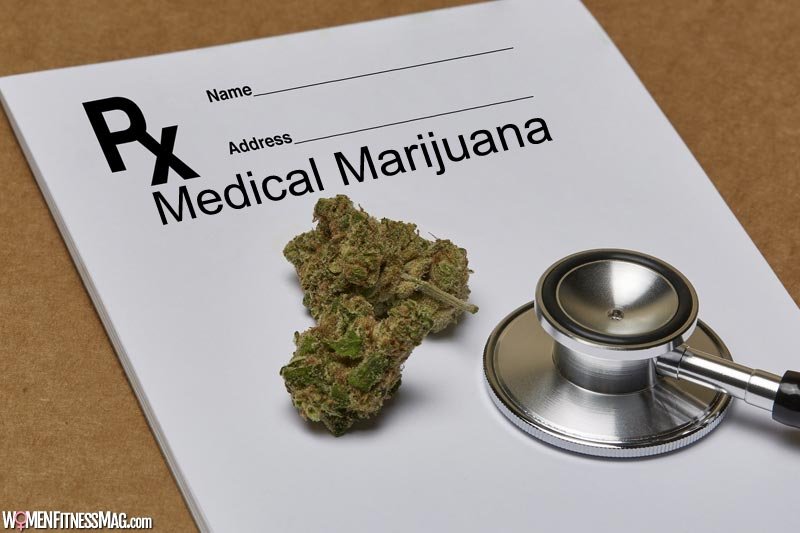Can You Get a Medical Marijuana Card for Severe or Chronic Pain in Maryland? Medical marijuana’s therapeutic advantages for a variety of illnesses, most notably pain management, are gaining popularity among patients and healthcare experts in MD. Certain patient populations may be able to substitute opioids with medical marijuana, according to research.
Can you get a medical card for severe or chronic pain in this states? Yes, you can. Get access to medical marijuana for severe or chronic pain at TeleLeafRX.com in Maryland and also you can apply for Ohio Marijuana Card Online.
Medical Marijuana May Alleviate Symptoms of Chronic Pain Patients in MD
Medical marijuana, often known as medical cannabis, refers to cannabis sativa plant derivatives that are used to alleviate serious and chronic symptoms.
THC binds to and activates cannabinoid receptors in the brain when it enters the body. The activation of these receptors has a variety of effects on the organism. Reduced pain and inflammation, nausea, insomnia, and increased appetite, are some of its benefits.
What is Severe or Chronic Pain
Chronic or severe pain is defined as pain that lasts longer than three months or extends beyond the time when normal tissue repair occurs. Tense muscles, restricted mobility, a lack of energy, and changes in appetite are some of the physical symptoms. Depression, worry, anger, and fear of re-injury are some of the emotional side effects. There are various forms of discomfort that can lead to chronic pain.
Chronic pain can be difficult to diagnose in some circumstances. When there is no other indication of an underlying injury or illness, some persons endure persistent pain. This is referred to as diagnosis by exclusion.
According to the National Health Interview Survey, about one in every five individuals in the United States suffered from chronic pain in 2019. More than 7% of people reported chronic pain that restricted their activities at work or in their daily lives.
Signs and Symptoms
Vegetative symptoms (e.g., lassitude, sleep disturbances, decreased appetite, lack of taste for food, weight loss, lower libido, constipation) are frequently associated with chronic pain. Constant, unrelenting pain can cause despair and anxiety, as well as obstruct nearly all activity.
Patients may become sedentary, socially withdrawn, and concerned with their physical condition. Psychological and social impairments might be severe, resulting in a complete inability to function.
Some patients, especially those without a clear-cut continuing cause, have a history of unsuccessful medical and surgical procedures, many rounds of diagnostic testing, the use of several medications (often including misuse or addiction), and improper health-care utilization.
Causes
- Arthritis and other joint problems
- Back pain
- Headaches
- Muscle strains and sprains
- Repetitive stress injuries occur when a bodily component is repeatedly strained by the same activity.
- Fibromyalgia is a disorder that causes muscular discomfort all throughout the body.
- Nerve damage
- Lyme disease
Treatment
Chronic pain should be addressed for specific reasons. Early, vigorous treatment of acute pain is usually preferred since it can reduce or avoid sensitization and remodeling, and hence chronic pain development.
Medication
- Nonsteroidal anti-inflammatory medicines (NSAIDs) are medications that are used to treat inflammation (NSAIDs )
- Analgesics including opioids
- Antidepressants, anti-seizure medicines (see table Drugs for Neuropathic Pain) are used as adjuvant analgesics.
- Chronic pain frequently necessitates the use of one or more medications with diverse mechanisms of action (rational polypharmacy). For neuropathic pain, adjuvant analgesics are most often utilized.
Chronic pain caused by cancer or other terminal illnesses can be managed with opioid medications. Patients using opioids for pain relief can develop a dependence and also create more side effects degrading your overall health.
Medical Marijuana Another Treatment for Chronic Pain
A new study published in the February edition of Health Affairs by the University of Michigan digs deeper into state medical marijuana registration data to give additional insight into its use.
According to the research, there was significant evidence that medical marijuana treatment reduced chronic pain, chemotherapy-induced nausea and vomiting, and multiple sclerosis (MS) spasticity symptoms.
They discovered that the number of medical cannabis patients has increased dramatically over time and that the vast majority of medical marijuana license holders — 85.5 percent — said they were seeking treatment for an evidence-based condition, with chronic pain accounting for 62.2 percent of all patient-reported qualifying conditions.
If you suffer from severe or chronic pain, you should get a medical marijuana recommendation from Teleleafrx.com as soon as possible. Talk to a qualified Maryland medical marijuana doctor today!
Related Videos about Can You Get a Medical Marijuana Card for Severe or Chronic Pain in Maryland? :
Can You Get a Medical Marijuana Card for Severe or Chronic Pain in Maryland?
qualifying conditions for medical card in maryland anxiety, 17 qualifying medical conditions in maryland, do you need a medical card to buy from a dispensary in maryland, can you get a medical card for anxiety in maryland, is it easy to get a medical card in maryland, maryland medical card application, how to get a medical card in maryland, how long does mmcc approval take,




